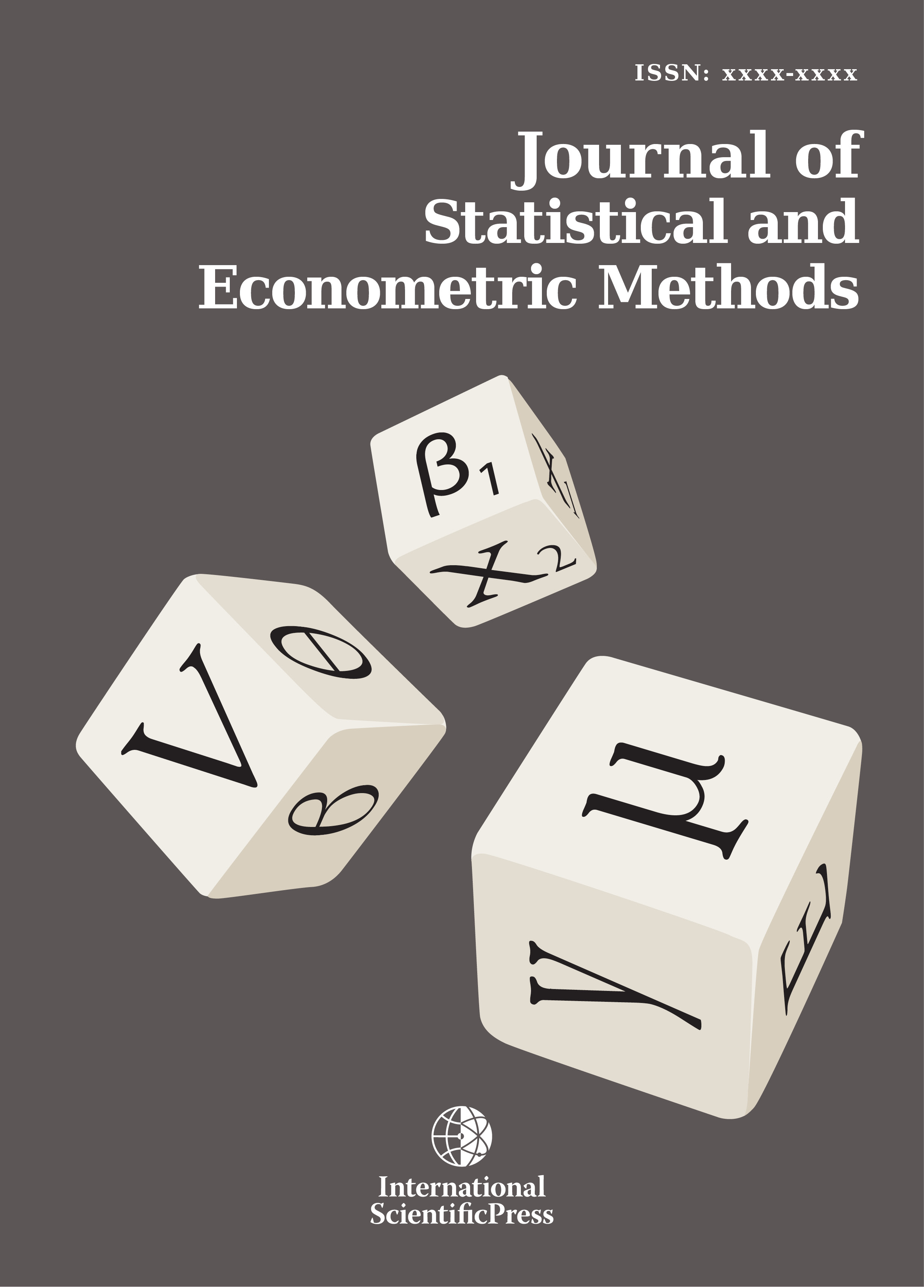Journal of Statistical and Econometric Methods
Impact of SO2 Allowance Price on Value of Firms
-
 [ Download ]
[ Download ]
- Times downloaded: 9953
Abstract
We did not find any study, besides a few event studies, in the environmental literature that has estimated the effect of the regulatory cost on the financial value of individual firms in the United States. Cost-benefit methodology does not deal with the impact on the stock value of a firm. To fill this gap, time series models are used to establish a functional relationship between stock price and prices of the SO2 allowance, coal, natural gas and electricity. Stock prices and the SO2 price are found to be non-stationary. For most of the firms, using the generalized conditional heteroscedasticity model we find that the exogenous variables (natural gas, coal and electricity prices) are largely insignificant in affecting the stock prices of firms. Hence, we dropped these variables from the functional specification for the relationship between the stock price and the SO2 allowance price. We find that the regulatory cost represented by the SO2 price is neutral in affecting the stock price of electric generation firms. We speculate or theorize that the public is indirectly paying for the environmental protection cost, otherwise SO2 price would have dampened the stock prices of firms.
Mathematics Subject Classification: C22, Q26.
Keywords: GARCH, stock price, SO2 allowance, coal, natural gas.
